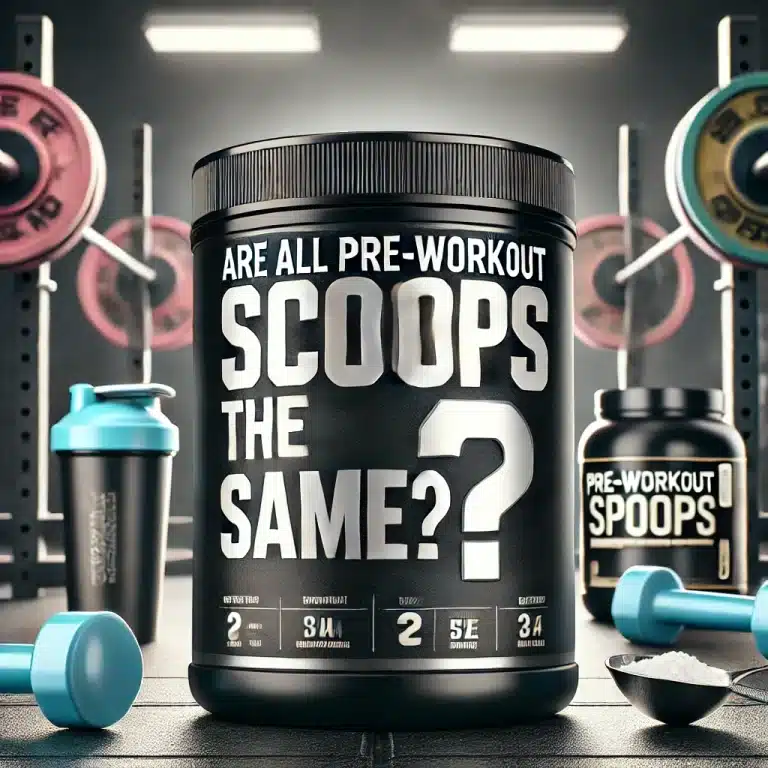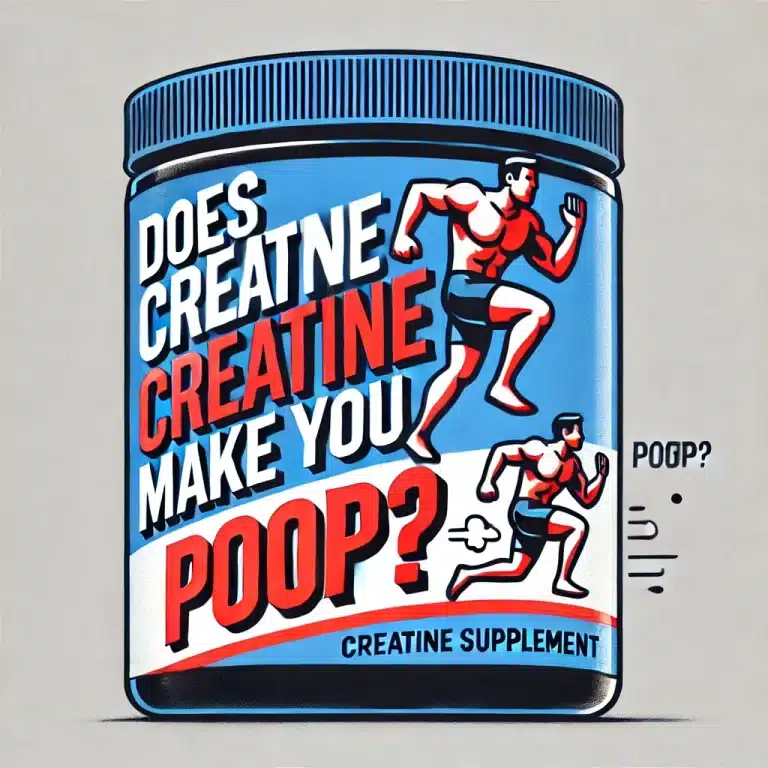Does Creatine Make You Sweat More?
You’re dripping while working out. sweating profusely as if you had just completed a marathon. The problem is that you have only been lifting for fifteen minutes. Strange.
Then you realize it. Is the creatine to blame? A few weeks after you started taking it, you’re suddenly perspiring profusely. Is creatine stealthily transforming you into a human sprinkler system, or is this merely a coincidence?
Many lifters, athletes, and fitness enthusiasts have pondered the notion that creatine increases perspiration. Some claim that after taking it, they perspire much more. Some claim it’s all in your head. What is the actual response, then?
Let’s dissect it.
Creatine & Sweat!
Let’s clear one thing before we delve into the whole sweating scenario: creatine is not a miracle sweat potion. Your own body generates this naturally occurring chemical, which is also contained in foods including red meat and fish. For brief bursts of activity—such as weight lifting, sprinting, or explosive movements—your muscles convert it to ATP.
The most researched type, creatine monohydrates, helps you push harder in workouts since your muscles retain more water and create more energy. For strength, muscle development, and performance especially, it is one of the most powerful supplements available.
How therefore does that relate to sweat generation? That’s where the interesting stuff starts.
Creatine influences multiple body systems—hydration balance, heat control, and muscular workload—all of which relate to your sweating level. Although it doesn’t always cause everyone to sweat more, it generates bodily conditions that could cause more perspiration, particularly during high-intensity workouts. Therefore, the domino effect is actual rather than your sweat glands going crazy directly. Let us dissect that still further.
Does Creatine Increase Sweating? The Science Explained
Direct scientific research does not exist that claims, “Creatine makes you sweat more.” Here, however, is where Not one straight scientific study claims, “Creatine makes you sweat more.” Here’s where things get interesting, though: creatine influences hydration, body temperature, and effort level—all of which can help to explain why one sweats more.
1. Creatine Increases Water Retention
Among the most well-known side effects of creatine is intramuscular water retention. It gives your muscular cells that full, pumped-up appearance by drawing water into them. This process alters the way water is delivered throughout the body even if it helps performance and recovery.
Muscle tissue holds more water, hence it is somewhat less accessible for other systems including the skin and sweat glands. That does not mean you are dehydrated; rather, it means your body may adjust by raising the sweat dial to regulate internal temperature, particularly during exercise.
Some people find that this change in fluid balance makes them feel warmer sooner, which causes earlier or more intense perspiration during physical activity. The essential lesson is Your body is using the water you are drinking, not only of course.
2. Creatine and Thermoregulation
Your body seeks to keep a safe internal temperature, acting like a clever thermostat. Thermoregulation is the process under which sweating is one of the most significant tools.
According to some studies, creatine may somewhat increase core temperature during high-intensity exercise—not because it is hot, but rather because it lets you perform more work. that additional production? It causes increased internal heat generation.
Moreover, the increased water in your muscles suggests that your body might not dissipate heat as well. That little change will cause your thermostat to go into overdrive, increasing perspiration to cool you off more quickly. While everyone does not experience this, some people find that their use of creatine results in a very substantial boost in thermogenic response.
3. Creatine Enhances Training Output—Which Generates Heat
It’s like adding an engine to your car. You don’t have to change your engine, but it works better.
That’s where sweat comes in. Because creatine:
- More reps
- Bigger sets
- Less time to rest
- Longer bursts of high-energy
All that work? It quickly gets hot. After that, your body does what it knows how to do: it sweats.
In a way, creatine doesn’t directly make you sweat, but it does cause a chain reaction that does. Your body has to work harder to cool down because you’re doing more work and using more energy. Things get hotter as you go faster. It makes you sweat more when it’s hot.
People who start taking creatine after hitting a halt will notice this the most. It’s possible for the amount of sweat they make during training to change just because they’re pulling more or doing more reps.
In short, creatine makes it more likely that you will sweat, but not because it makes you sweatier; it makes you sweatier because you’re working harder than before.
Can More Sweating Lead to Dehydration?

The main way your body cools down is by sweating, but if you don’t drink enough water, you can become dehydrated. Because creatine makes muscle cells hold on to more water, you need to drink more water to stay refreshed and avoid side effects.
If you’re taking creatine and sweating more than normal but not replacing the water you lose, you may:
- Feeling tired and sluggish: When you’re dehydrated, it’s hard for your body to get air and nutrients to your muscles, which makes you perform poorly.
- Muscle stiffness and cramping: When you sweat, you lose more than just water. You also lose important electrolytes like magnesium, potassium, and salt. If you lose too many of these minerals, your muscles may not work as well and you may get painful cramps.
- Feeling dizzy or faint: If you’re dehydrated, your blood pressure will drop, which can make you feel weak or dizzy, especially after a hard workout.
- You may feel thirsty and have a dry mouth. This is one of the first signs that your body needs water. It could mean that you need to change how you drink water during workouts if you’re always thirsty.
How to Prevent Dehydration on Creatine?
Being careful not to become dehydrated is very important if you’re sweating a lot while taking creatine. How to do it:
- Drink more water. Aim for at least 3–4 liters a day, and even more if you’re working out hard.
- To replace the electrolytes you lose when you sweat, eat foods that are high in potassium, magnesium, and sodium, or drink drinks that contain electrolytes.
- Keep an eye on the color of your urine. Light yellow urine means you’re well-hydrated, while darker urine means you need to drink more water.
- During your workout, take breaks to drink water. Instead of drinking a lot of water at once, sip it as you work out.
- Stay away from too much caffeine and booze. Both can make you dehydrated by making you pee more often.
Does More Sweating Mean More Fat Burn?
A lot of people think that sweating more will help them lose fat. It makes sense—if you’re soaked after a tough workout, you must have burned more calories, right? Not really, though.
Sweating is how your body cools itself; it doesn’t show how many calories you’re burning. Your body releases fluids when you sweat to help keep the temperature down. This process keeps you from getting too hot, but it doesn’t mean that fat is going away. Because they can see changes right away on the scale after a hard workout or time in a sauna, many people think that sweating makes them lose weight. But most of that weight loss is water weight and not fat. It’s easy to lose weight; all you have to do is drink water.
A caloric shortfall, in which you burn more calories than you eat, is what causes real fat loss. That process takes time and has nothing to do with how much you sweat during a workout. We could sit in a sauna for an hour and still lose weight, but that doesn’t mean they burned fat. It just means they lost water.
Having said that, sweating more might be a sign that you’re working harder, which does help you lose fat. If creatine helps you push your workouts further, like pulling heavier weights, doing more reps, or keeping up a higher intensity for longer, then you are burning more calories, which will help you lose fat over time. But the important thing is how hard you work, not how much sweat you make. Genetics, surroundings, and differences in how each person controls their body temperature can make some people sweat more than others. It’s not always a sign of how many calories they’re burning.
Even though creatine doesn’t burn fat directly, it can help change your body makeup in other ways. For example, it builds muscle, which raises your resting metabolic rate and lets you burn more calories during the day. It also raises the volume of your workouts, making you work out harder and longer, which burns more energy. Additionally, creatine speeds up healing, which lets you train more often and harder, which can help you lose fat over time.
You’re not burning more fat when you sweat more; your body is just working harder to keep you at the right temperature. How wet your shirt gets during a workout doesn’t have anything to do with how much fat you lose. Creatine can indeed help you lose fat by improving your performance, building muscle, and doing workouts with more energy, but it doesn’t burn fat itself. Instead of how much you sweat, you should focus on what you eat, how hard you work out, and how often you do it.
Who Might Sweat More on Creatine?
Not everyone who takes creatine will notice that they sweat more, but some people are more likely to have this side effect because of how their body naturally reacts to physical stress and supplements. First, players who push themselves in high-intensity sports like football, CrossFit, sprinting, or powerlifting tend to sweat more. That might not be because of the creatine itself, but because it helps them train harder, longer, and with more volume, all of which make their bodies heat up more. Your body makes more sweat to cool you down when it makes more heat.
People who naturally sweat a lot may also notice this change. For people who get hot when they step outside in the summer, creatine might turn up the heat. The pill doesn’t instantly change your body, but it does slightly change how much water you hold and where it’s distributed, which may make you sweat more than usual.
Also, if you live or work out in a hot, humid place, you may notice that creatine makes you sweat more. Your body’s thermoregulation system is already working hard to cool you down, and any increase in performance or metabolic output, like what creatine does, could make this reaction even stronger. In the same way, people who eat a lot of salt may hold on to more water, which can indirectly change how much they sweat when they work out.
It’s important to remember, though, that sweating more isn’t a problem by itself. It happens to a lot of people when they work harder and push their limits, which is good. It’s important to stay refreshed and replace the water you lose. If you’re sweating more, don’t worry. Your body may be telling you that you’re ready for the next level.
Should You Worry About Sweating More on Creatine?
No, a little extra heat isn’t a big deal for most people. But pay attention at these times:
- Risk of dehydration: If you sweat more but don’t drink enough water, you could be losing too many fluids, which could make you feel tired, dizzy, and have muscle cramps.
- Unbalanced electrolytes: Salt, potassium, and magnesium are all found in sweat. You might feel tired or weak if you sweat a lot and don’t replace your fluids.
- Overheating risk: You could get heat stress if you train in very hot conditions or don’t take enough breaks to cool down.
The Verdict: Does Creatine Make You Sweat More?
In short, yes. It relies on.
There is no direct link between creatine and excessive sweating, but in some cases, it can make you sweat more by:
- Changing how much water the body has.
- Increasing the need to control body temperature during workouts.
- Getting you to work out harder, which makes you sweat more.
Taking creatine might make you sweat more, but that means you’re working harder, which is a good thing! Just make sure to drink enough water, get the salts back, and pay attention to your body.
Don’t worry if you start taking creatine and start sweating a lot. You’re not becoming a walking spring; you’re just getting stronger at the gym.






